In the heart of the Atlantic, INESC TEC co-organised another WAVES workshop, dedicated to advanced research vehicles. In the “Windy City,” the Institute’s researchers also had the opportunity to showcase INESC TEC’s expertise in marine robotics.
From 14 to 17 October, Ponta Delgada hosted the third edition of the WAVES – Workshop on Advanced Vehicles for Exploration of the Seas. Co-organised by INESC TEC and the University of the Azores, the objective remained the same: to bring the scientific and business community of the archipelago closer to the opportunities associated with new technologies.
Under the theme “use of technology in predicting and mitigating marine environmental risks,” the latest WAVES edition featured presentations of results from previous editions, discussions of ongoing and proposed projects, and the presentation of experimental data that had led to publications and participation in other conferences.
The INESC TEC team comprised researchers Alexandra Nunes, Ana Rita Gaspar, and Nuno Cruz, who coordinates the Institute’s robotics and autonomous systems area. Over the several days of the event, the delegation not only showcased INESC TEC’s marine robotics capabilities and their potential application in the Azores but also disseminated the outcomes of the Institute’s work associated with the initiative and the participants.
The researchers highlighted key progress from AI4Ports, an FCT-funded project with INESC TEC’s involvement – namely to detect and quantify anomalies in submerged structures at Azorean ports.
The team also presented other results from previous WAVES editions, such as a master’s thesis on developing robotic solutions for aquaculture – completed at FEUP, in a joint effort between INESC TEC and the company Aquazor.
“Naturally, all these activities are extremely important to reinforce ties with colleagues in the Azores. There are many opportunities for applying robotics in the Azorean waters, and we are very eager to pursue them together,” emphasised Nuno Cruz. He also stated that “discussions have already begun for new joint initiatives, which will naturally include WAVES 2026.”
In addition to visits to the Centro de Qualificação dos Açores, the company Aquazor/Finançor, and the Azores Ports, the workshop also featured marine robotics demonstrations. INESC TEC researchers demonstrated a Remotely Operated Vehicle (ROV) from the AI4Ports project in action. The robot inspected pillars and walls of a cruise terminal, with the collected data discussed afterward.
“With the approval of the AI4Ports project, the University of the Azores acquired this ROV for underwater inspection operations at the Azores Ports,” noted Nuno Cruz. According to the researcher, “INESC TEC supported the acquisition of the equipment, as well as the installation of an inspection system with video and sonar.” “Now we are also developing AI algorithms as part of the project to automatically identify and quantify anomalies.”
After Brest, INESC TEC returns to the OCEANS conference in the United States
Following the participation in the French edition, INESC TEC crossed the Atlantic to Chicago to attend another OCEANS initiative.
Organised by the Oceanic Engineering Society (OES) of the Institute of Electrical and Electronics Engineers (IEEE), the North American editions of OCEANS have previously featured numerous INESC TEC contributions. The robotics research team, led by Nuno Cruz, also included André Pinto, Bruno Ferreira, and Carlos Gonçalves.
“In line with all our research areas, we presented six scientific papers, particularly related to underwater navigation and localisation, perception systems, and sensory platforms,” emphasised Nuno Cruz.
In addition to presenting papers, INESC TEC researchers also demonstrated progress and key results from two projects coordinated by the Institute: Seaguard (focused on developing maritime border monitoring technologies) and Nautilus (dedicated to developing autonomous systems for long-term infrastructure surveillance).
The researchers mentioned in this news piece are associated with INESC TEC and the Faculty of Engineering of the University of Porto (FEUP).

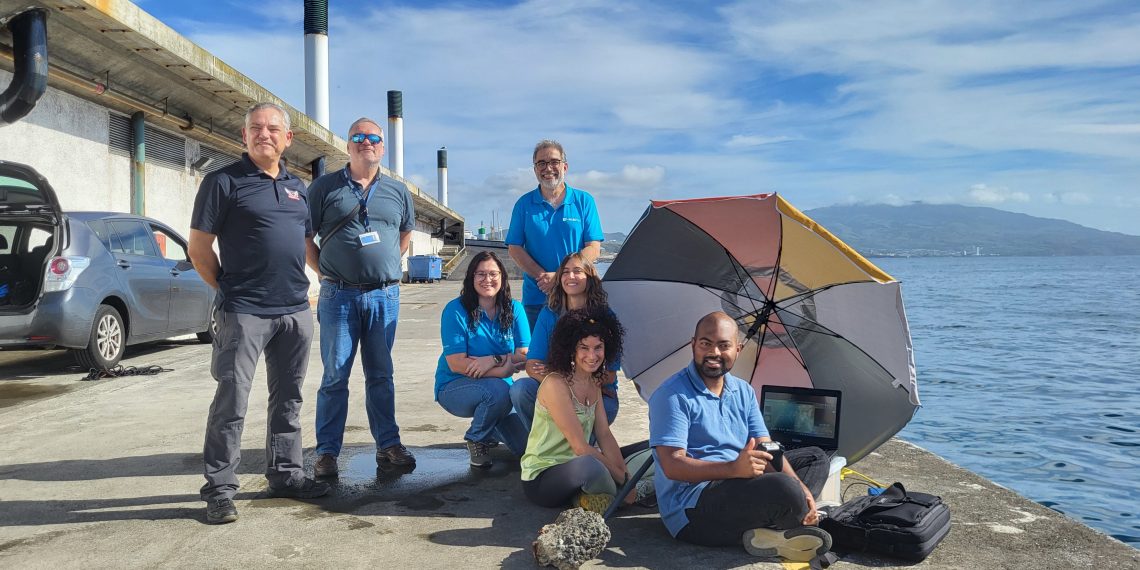
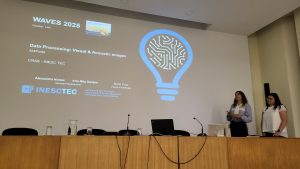
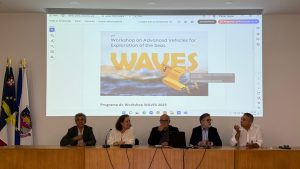
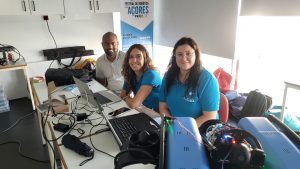
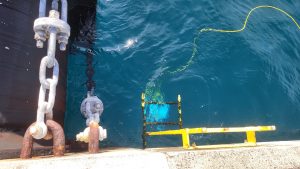
 News, current topics, curiosities and so much more about INESC TEC and its community!
News, current topics, curiosities and so much more about INESC TEC and its community!